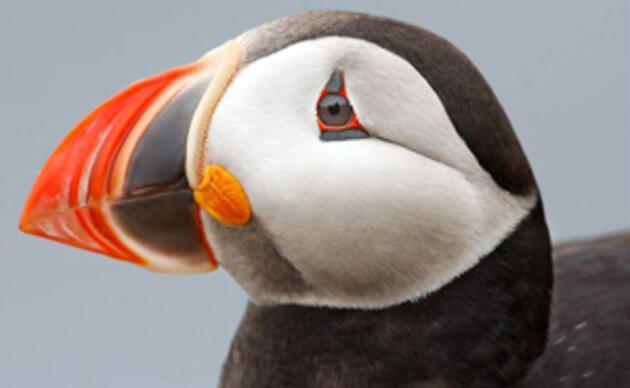2018 Josephine Daneman Herz International Seabird Fellows
Ariana Duarte Canizales has a degree in Biology from the Universidad Autónoma de Baja California, Mexico, where she collaborated in the Histology Lab. She’s been working for Grupo de Ecología y Conservación de Islas, A.C. since 2013 as part of Environmental Restoration Project on Guadalupe Island. She has also collaborated in island restoration programs in the Gulf of California and the Caribbean Sea. Currently, her activities include monitoring seabird populations, and native and exotic flora and fauna, implementing social attraction techniques as well as, carrying out environmental learning activities with local communities and Mexican Navy.
Ana Gabriel Cárdenas received her M.Sc. in Environmental Sciences and Molecular Ecology and Biotechnology at Universidad Autónoma de Baja California, Mexico. Her research focused on phylogeny and genetics of Storm-Petrels on Guadalupe Island, in the Mexican Pacific. She joined Grupo de Ecología y Conservación de Islas, A.C. (GECI) in 2010, and since then has collaborated with numerous environmental restoration projects removing invasive species to benefit seabird populations. She is coordinator of Guadalupe Island project which includes several components as seabird restoration, feral cat eradication, & ecological restoration of plant communities. Her interests include integration of innovative tools, such as geographic information systems & molecular markers, to achieve conservation goals for seabirds.
Lyanne Pierina Ampuero Merino has a degree in Biology from the National University of San Agustín, Arequipa, Peru. She began studying seabirds in 2013 when she volunteered at the Punta San Juan Program, Peru. Her undergraduate thesis research focused on the behavior and breeding success of Inca terns. She has lead studies to eradicate invasive rodents to benefit seabirds at Lobos de Afuera Islands and Punta San Juan in Peru. She also studied foraging distribution of Peruvian Boobies, Humboldt Penguins, Inca Terns and Guanay Cormorants in Punta San Juan. Currently she is an Associate Junior Researcher at the Punta San Juan Program. She is interested in the reproductive success of endemic and threatened marine birds of Peru and finding efficient controls for invasive rodents to increase the breeding success of Peruvian seabirds.
María José Vilches Villa (Coté) holds a Bachelor of Science in Veterinary and Animal Sciences from Universidad de Chile. After graduating, she completed two diploma programs in Veterinary Environmental Management and Wildlife Conservation and Management from Universidad de Chile. Since 2013, she has participated as a volunteer in Universidad de Chile’s Environmental Management Center, applying environmental management models and tools. María José has been working with Island Conservation since 2016, supporting the Chañaral Island program since its inception and supporting monitoring on Choros Island. When not working to protect the environment and at-risk wildlife, she enjoys cycling and a good game of volleyball.
Learn about birds and take action
Adopt-A-Puffin
Adopt now and receive: A Certificate of Adoption, A biography of "your" puffin, and The book How We Brought Puffins Back To Egg Rock by Stephen Kress.
Visitor Center
The Project Puffin Visitor Center (PPVC) is located at 311 Main Street in downtown Rockland, Maine. The center opened its doors officially on July 1, 2006.



